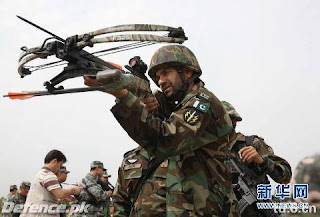Mission
Mission
Pakistan Army serves as the land-based branch of the Pakistan Military. Chapter 2 of PART XII of Pakistani Constitution defines the purpose of the Army as:[9]“ The Armed Forces shall, under the directions of the Federal Government, defend Pakistan against external aggression or threat of war, and, subject to law, act in aid of civil power when called upon to do so.
1969–1971
During the rule of Yahya Khan, the people of East Pakistan protested against various political and economic disparities that had been imposed on them by West Pakistan and massive civil unrest broke out in East Pakistan. During operations against these rebels, called Operation Searchlight, a faction of the Pakistan Army under General Yahya Khan was responsible for the 1971 Bangladesh atrocities.[12] Beginning with the start of Operation Searchlight on 25 March 1971 and due to the Bangladesh Liberation War, there were numerous human rights abuses in East Pakistan (now Bangladesh) perpetrated by the Pakistan Army, with support from local political and religious militias, especially against Hindus.[13][14] Time reported a high ranking U.S. official as saying "It is the most incredible, calculated thing since the days of the Nazis in Poland."[15]
The original plan envisioned taking control of the major cities on 26 March 1971, and then eliminating all opposition, political or military,[16] within one month. The prolonged Bengali resistance was not anticipated by Pakistani planners.[17] The main phase of Operation Searchlight ended with the fall of the last major town in Bengali hands in the mid of May.
Soon heavy fighting broke out between Pakistani army and India-backed Bengali freedom fighters,in this period Pak army killed estimated 3 Million Bengali people.In December 1971,Pakistan attacked India's western air based that started war of 1971.In eastern theater Pak army was decimated by Indian Army and Bengali freedom fighters,while in west front,Pak army was defeated in battles of Basanter and Longewalla.
On 16 December 1971, Lt. Gen A. A. K. Niazi, CO of Pakistan Army forces located in East Pakistan signed the Instrument of Surrender.Over 93,000 Pakistani troops surrendered to the Indian forces, making it the largest surrender since World War II.
In 1997 R. J. Rummel published a book, available on the web, called "Statistics of Democide: Genocide and Mass Murder Since 1900", In Chapter 8 called "Statistics Of Pakistan's Democide Estimates, Calculations, And Sources" he looks at the 1971 Bangladesh Liberation War. Rummel wrote:
In East Pakistan (now Bangladesh) [the President of Pakistan, General Agha Mohammed Yahya Khan, and his top generals] also planned to murder its Bengali intellectual, cultural, and political elite. They also planned to indiscriminately murder hundreds of thousands of its Hindus and drive the rest into India. And they planned to destroy its economic base to insure that it would be subordinate to West Pakistan for at least a generation to come. This plan may be perceived as genocide.[18]
According to Maj. (Retd.) Agha Humayun Amin, Pakistan Army high command commanders had not seriously considered an Indian invasion of East Pakistan until December 1971 because it was presumed that the Indian military would not risk Chinese or U.S. intervention. Maj Mazhar states that the PA's senior command failed to realise that the Chinese would be unable to intervene during the winter months of November to December 1971 period due to snowbound Himalayan passes and the U.S. had not made any real effort to persuade India against attacking East Pakistan.











.jpg)
.jpg)
.jpg)



.jpg)

.Ships.jpg)








.jpg)























.jpg)
.jpg)
+Armed+Forces+Troops+Soldier+sniper+Karabiner+98k+HK+PSG1+M82+Barret+Steyr+SSG+69+109+107marksman+tribal+Operation+Rah-e-Nijat+Waziristan+Administered+Tribal+Areas+War+(3).jpg)
.jpg)










.jpg)









0 comments: